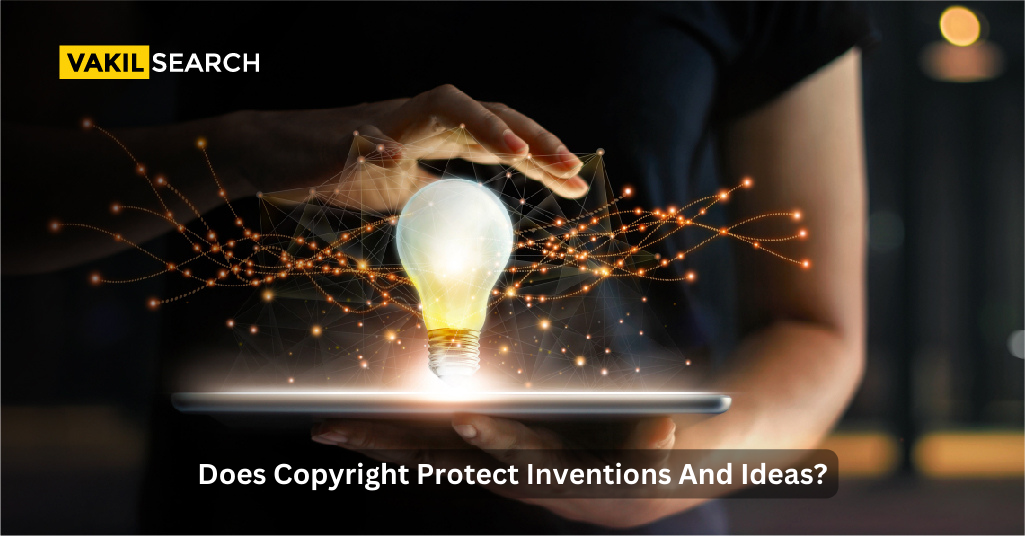Most people know that patents protect inventions, but generally shrink from the patent process due to the time and cost involved. Are there other remedies?
Have you ever penned down a poem or lyrics for a song? Have you ever authored a book or produced a film? Are you a musician who regularly composes tunes or an artist who creates some amazing sketches? Irrespective of the type of content you create, you may often be anxious that someone else may pass off your work as their own and take all the credit due to you. Let’s see how copyright protects inventions. Most people know that patents protect inventions, but generally shrink from the patent process due to the time and Public Performance License Cost involved.
The best way to protect your creative works is by registering for copyrights. Copyrights are a group of rights automatically conferred on you when you create original work. It is a type of intellectual property that grants you exclusive legal Performing rights to publish, revise, reprint, record, perform, or distribute your work to the public. Nobody can duplicate your work without your consent and in case of any infringement, you can move the court against the guilty.
The prime objective of Copyright Laws is to encourage creativity. It also enables the creator to monetize his work and make it available to the general public for enjoyment or entertainment purposes. Thus, you can now showcase your creative talents to the world without having to worry about theft, plagiarism, or copying. You can also inspire others to follow creative pursuits.
Ideas Vs Inventions
From the previous paragraphs, you may have got a fair idea about what constitutes creativity. But, is it the same as an invention? Probably not. Does copyright protect inventions? No. Let us understand why.
- An invention refers to the creation of a new concept or idea
- An invention becomes an innovation when new ideas created have commercial applications
- Thus, innovations and inventions are closely related
- However, creativity is distinct from invention/innovation as it involves the transformation of imaginations into reality
- Creativity does not involve discovering something non-existent before
- Creative works have economic significance, but not necessarily a wide range of industrial applications
- Thus, the laws governing the protection of inventions and creative works are also different.
Inventions will be protected by patents whereas creative works will have protection by copyrights. In India, patent laws are governed by ‘The Patents Act, 1970’ whereas copyright laws are defined by ‘The Copyright Act, 1957’.
Patent Registration Procedure
- Firstly, check the patentability of your invention
- Then, furnish complete details of your invention with relevant diagrams and graphs in a patent draft
- Patent drafts are techno-legal documents and hence should not be written like a research thesis or academic reports
- A well-written patent draft wins half the battle for you in the patent acquisition process. There are different types of patent applications
- Depending on the status of your invention, you can choose the type of application
- Duly fill and sign all the necessary documents and submit them along with the patent draft to the Indian patent office to complete the application process
- The patent application will publish after 18 months from the priority date
- You can then raise a request for examination and the patent officer will inspect your invention and submit the First Examination Report (FER)
- Clarify all the objections raised in the FER
- If the examiner is with satisfaction with your explanation and convinces that your invention conforms to all the patent requirements, you will be granted a patent
- Patents are usually issued for a period of 20 years.
Procedure
As you are now well acquainted with the patent registration process, now we will divert our attention to the copyright registration process.
Essential Documents Required to Copyright Inventions
- 3 copies of published work
- 2 copies of manuscripts for unpublished work
- Power of Attorney signed by copyright claimant and his attorney
- Authorization letter if the claimant is not the originator of the work
- Name, address, nationality, and contact details of the applicant
- Language and title of the work
- Death certificate if the original creator has deceased
- A NOC (no objection certificate) from the trademarks office, if your work is going to be used on a product
- Additionally, a NOC from publisher/author if you are not the publisher/author
- A NOC from all those individuals whose pictures and personal information will share in your work
- Complete details of all publications of your work
- Source and object codes if you are procuring copyrights for software.
Steps Involved in the Registration Process
Below are the steps for Legal Copyright Registration:
- File an application at the copyrights office: https://copyright.gov.in/ by furnishing complete details of your work and paying up the requisite application fees
- Your application will be examined within 30 days of application filing. Rectify the discrepancies, if any, raised by the examiner. If somebody has raised an objection against your application, the Registrar conducts a hearing. If the issue is amicably resolved, you are just a step away from acquiring copyright protection, else your application stands will cancel
- The registrar will issue you a certificate of registration and the same will be recorded in the register of copyrights (RoC).
While the patent and copyright registration processes appear to be simple, they are both lengthy and time-consuming. Protecting your inventions or creativity through patents or Copyright Literary Work India, on the other hand, is well worth the effort. To get started, contact the experts at Vakilsearch right now.
Also, Read:

